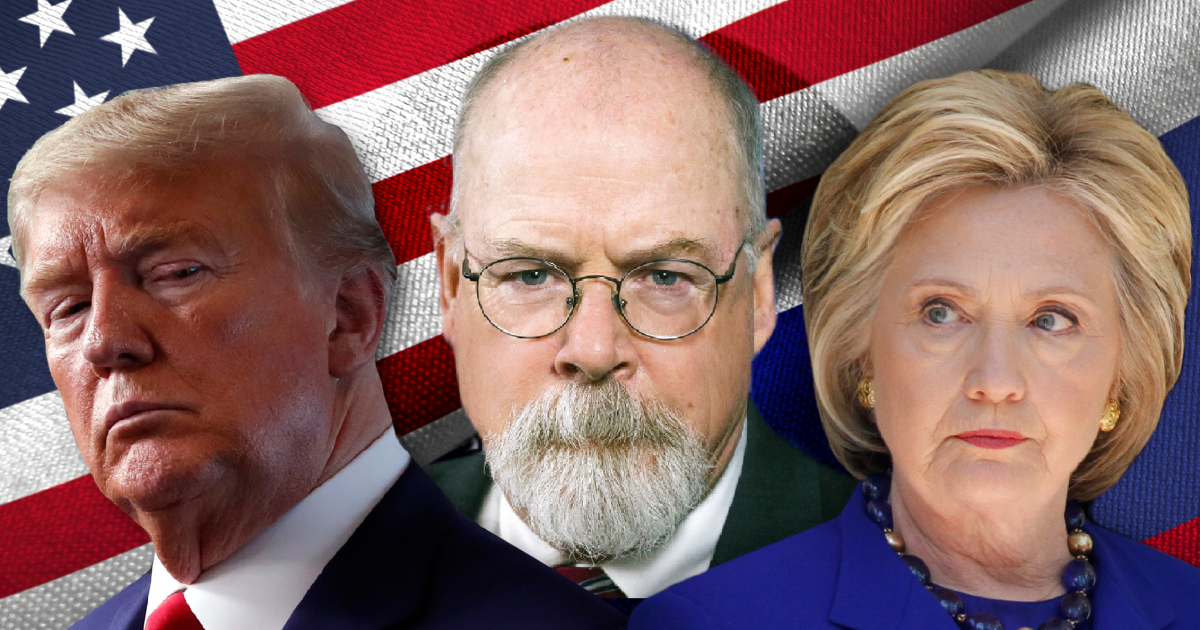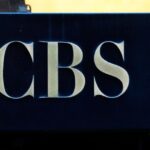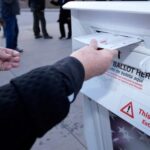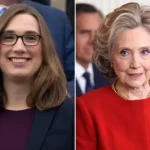

A federal judge placed limits on special counsel John Durham’s evidence in court meant to demonstrate a “joint venture” involving Hillary Clinton’s 2016 presidential campaign to discredit rival Donald Trump with Russia collusion claims.
A ruling Saturday evening included wins and losses for both the prosecution and defense in the case against Democratic cybersecurity lawyer Michael Sussmann, who was indicted for allegedly concealing his clients — Clinton’s campaign and “Tech Executive-1” Rodney Joffe — from FBI general counsel James Baker in September 2016 when he presented internet data that suggested a now-discredited back channel link between the Trump Organization and Russia’s Alfa-Bank. Sussmann has pleaded not guilty.
“The government contends that the Alfa Bank data was gathered as part of a concerted effort to collect and disseminate derogatory opposition research about Donald Trump,” U.S. District Judge Christopher Cooper, appointed by former President Barack Obama, wrote in the 24-page ruling, adding that participants in the “purported joint undertaking” included Sussmann, the Clinton campaign, Clinton campaign general counsel and Perkins Coie partner Marc Elias, the opposition research firm Fusion GPS, Joffe, and several computer researchers working at Joffe’s direction.
“The Court will exercise its discretion not to engage in the kind of extensive evidentiary analysis that would be required to find that such a joint venture existed, and who may have joined it, in order to admit these emails,” the judge ruled, “For starters, Mr. Sussmann is not charged with a conspiracy.”
“Moreover, while the Special Counsel has proffered some evidence of a collective effort to disseminate the purported link between Trump and Alfa Bank to the press and others, the contours of this venture and its participants are not entirely obvious,” the judge claimed. “The Court is particularly skeptical that the researchers — who were not employed by Mr. Joffe, Fusion GPS, or the Clinton Campaign, and most of whom never communicated with Mr. Sussmann — shared in this common goal.”
Cooper also said that “where exactly Mr. Sussmann fits into the enterprise is similarly murky at this stage.”
JUDGE WON’T LET CLINTON COLLUSION TWEET BE ADMITTED IN SUSSMANN TRIAL
There is a tangled web of ties between this cast of characters that Trump and his allies often vilify as being instrumental to a “Russia collusion hoax” meant to undermine his campaign and, later, Trump’s presidency. British ex-spy Christopher Steele created his discredited anti-Trump dossier after being hired by Fusion, which was itself hired by Perkins and Elias. Sussmann and Elias worked for Perkins at the time, and Fusion pushed Alfa Bank claims, too.
Durham has said evidence at trial, set to begin this month, would show that beginning in late July 2016, Sussmann, Joffe, and “agents of the Clinton campaign” were “assembling and disseminating the [Alfa Bank] allegations and other derogatory information about Trump and his associates to the media and the U.S. government.”
The special counsel said his team will show this amounted to a joint venture, and to some degree, the judge is open to seeing where the argument goes.
“The government may attempt to connect the dots between the various participants in the collection and use of the Alfa Bank data. … But as it stands now, the government must steer clear of evidence regarding the accuracy of the data, which the defense does not plan to place at issue, and whether Mr. Joffe’s role in the collection effort was somehow ‘objectionable’ or illegal,” Cooper ruled. “Nor will the Court conduct a time-consuming and largely unnecessary mini-trial to determine the existence and scope of an uncharged conspiracy to develop and disseminate the Alfa Bank data.”
The FBI, CIA, special counsel Robert Mueller, a bipartisan Senate Intelligence Committee investigation, and Durham’s team have all cast doubt on or shot down the Trump-Alfa Bank link.
“The government has proffered the existence of at least some circumstantial evidence connecting Mr. Sussmann to certain aspects of the data gathering effort,” Cooper wrote, adding that “the government contends that Mr. Sussmann’s desire to conceal this joint venture — particularly the Clinton Campaign’s involvement — supplied a motive for him to misrepresent to Mr. Baker that he was not providing the data to the FBI on behalf of any client.”
“The defense paints a different picture,” Cooper wrote, adding, “Its case will be that Mr. Joffe obtained and analyzed the relevant data independently of Mr. Sussmann and the Clinton Campaign.”
Cooper said, “The jury is entitled to hear both these narratives. The parties may therefore bring out otherwise admissible trial evidence supporting their competing theories regarding the gathering and use of the data. Permissible areas of inquiry include how the data came into being and who was involved in its collection and analysis, as well as how Mr. Sussmann came to possess the data, what he did with it, and why.”
“The Court will impose certain limitations on the use of this evidence, however,” Cooper wrote, adding, “Unless the defense opens the door for admission by vouching for the data, the government will not be permitted to put on extensive evidence about its accuracy.”
The judge also discussed emails Durham wanted to admit between Joffe, Georgia Tech researchers Manos Antonakakis and David Dagon (“Researcher-1” and “Researcher-2”), and “Originator-1” April Lorenzen, wherein “the researchers and Mr. Joffe discuss the data collection effort and their conclusions about the data.” He ruled that “as of now” the emails are “not relevant” to Sussmann’s state of mind, though he “may revisit this determination if the government shows that Mr. Sussmann at some point received these emails or became aware of their contents.”
In addition, Durham obtained hundreds of emails from Fusion showing it was pushing unverified Trump-Russia collusion allegations to the media throughout 2016. Cooper ruled those emails are “admissible” because Durham is offering them “to demonstrate that Fusion GPS and the researchers shared the ultimate goal of disseminating the Alfa Bank allegations to the press.”
But the judge limited which Joffe emails could be shown in court, including ruling as inadmissible an email that Joffe sent to a colleague in November 2016 after Trump won in which the tech executive said, “I was tentatively offered the top [cybersecurity] job by the Democrats when it looked like they’d win.” Cooper said that “it makes no reference to the Alfa Bank allegations.”
Allowing notes taken by Bill Priestap, assistant director of the FBI’s counterintelligence division, and FBI deputy general Trisha Anderson as evidence “depends both on whether Mr. Baker’s credibility is attacked and on Mr. Priestap and Ms. Anderson’s testimony,” the judge said.
Durham said Baker met with Priestap and Anderson after his meeting with Sussmann. Priestap wrote in his notes that Baker said Sussmann “said not doing this for any client.” Anderson’s notes said in part, “No specific client.”
To bolster the case against Sussmann, special counsel revealed the lawyer sent a text message to Baker the night before their meeting at the bureau, writing, “I’m coming on my own – not on behalf of a client or company – want to help the Bureau.”
“If Mr. Baker’s memory is challenged on cross examination [this strikes the Court as no sure thing given the recent revelation of a text message apparently sent by Mr. Sussmann to Mr. Baker the day before their meeting indicating that he was not attending the meeting on behalf of a client], his prior consistent statement would be admissible to bolster his testimony,” Cooper said Saturday.
Durham says Sussmann similarly concealed his client, Joffe, when he met with the CIA in February 2017, when he linked Trump to Russian-made YotaPhones phones near the White House and elsewhere. The special counsel has rejected these allegations and said the CIA did too.
The special counsel released notes showing the CIA said Sussmann told the agency he had met with Baker “on a similar, though unrelated, matter.” Durham said that was “misleading” because information regarding the Alfa Bank allegations that he had pushed to the FBI was among the materials Sussmann provided to the CIA and thus was not unrelated.
“Both statements are admissible, assuming the government lays a proper foundation,” Cooper ruled on Saturday, adding, “However, the Court will not permit this line of inquiry to lead to additional technical testimony about the YotaPhone allegations or their accuracy.”
CLICK HERE TO READ MORE FROM THE WASHINGTON EXAMINER
Sussmann’s lawyers have argued that Durham should be forced to grant Joffe immunity. Durham prosecutor Andrew DeFilippis said late last month the special counsel’s team is still “looking closely” at Joffe, citing “ongoing investigative matters” and noting “some criminal statutes are longer than five years.” With Cooper asking for an example, the Durham prosecutor pointed to a law on major fraud against the U.S. government, specifically mentioning a Defense Advanced Research Projects Agency contract.
“The Special Counsel’s continued representation that Mr. Joffe is a subject of its investigation, rather than simply a witness, does not amount to prosecutorial misconduct on this record,” Cooper ruled Saturday. “The Court therefore has no basis to order the Special Counsel to extend use immunity to Mr. Joffe.”
Durham said Joffe tasked employees and associates with mining and assembling internet data that would support a “narrative” tying Trump to Russia. The tech executive’s motive was demonstrated in emails that said the goal was to please “VIPs” — referring to Sussmann, Elias, and the Clinton campaign.






